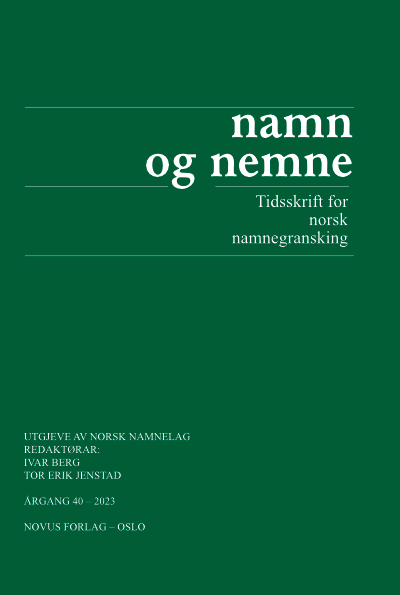Sammendrag
This article is a socio-onomastic contribution to Norwegian language history. We investigate which names were given to the stops on two new railway lines during the last decades of the 19th century: Ofotbanen in Nordland and Nesttun–Osbanen in Hordaland. We investigate whether naming practices were different in railway development in the north and southwest, in the mountains and farmland, and in a multilingual versus a monolingual environment. One question reagarding the naming practices is whether the names given to stops and stations were names of natural features, farm names or names of man-made features, and whether it is possible to find out who had the power to decide which names should be used. We also look briefly at the etymology of the various names. The article ends with a look at the locomotives and their names.
Dette verket er lisensiert under Creative Commons Attribution-ShareAlike 4.0 International License.
Opphavsrett 2023 Forfatterne

